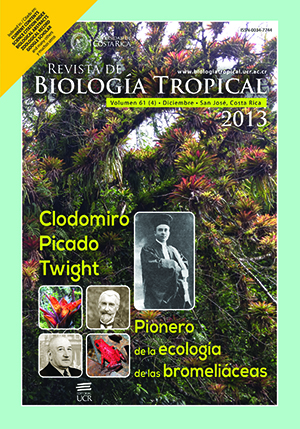Abstract
The nesting colony of green sea turtles (Chelonia mydas) at Guanahacabibes Peninsula Biosphere Reserve and National Park is one of the largest in the Cuban archipelago; however, little information about its nesting ecology is available. Temporal and spatial variation in nesting and reproductive success as well as morphometric characteristics of gravid females were used to ecologically characterize this colony. Nine beaches of the Southernmost coast of Guanahacabibes Peninsula were monitored for 14 years (1998-2012) to determine green turtle nesting activity, from May to September (peak nesting season in this area). Beach dimensions were measured to determine nest density using the length and the area. Afterward the beaches were divided in two categories, index and secondary. Females were measured and tagged to compare new tagged females (823) with returning tagged females (140). Remigration interval was also determined. Temporal variation was identified as the annual number of nesting emergences and oviposits per female, with apparent peaks in reproductive activity on a biennial cycle in the first six years followed by periods of annual increase in nest number (2003-2008) and periods of decreasing number of nests (2010-2012). We also found intra-seasonal variation with the highest nesting activity in July, particularly in the second half of the month. The peak emergence time was 22:00-02:00hr. In terms of spatial variation, smaller beaches had the highest nest density and nesting was more frequent 6-9m from the high tide line, where hatchling production was maximized although hatchling success was high on average, above 80%. Morphometric analysis of females was made and newly tagged turtles were smaller on average than remigrants. Our results are only a first attempt at characterizing Guanahacabibes’ populations but have great value for establishing conservation priorities within the context of national management plans, and for efficient monitoring and protection of nesting beaches.##plugins.facebook.comentarios##
Downloads
Download data is not yet available.






